When building a WordPress website, one of the most crucial decisions you’ll make is selecting the right WordPress hosting provider. The hosting you choose can significantly impact your website’s speed, security, reliability, and overall performance. With so many hosting options available, it can be challenging to determine which one is best suited for your needs. This guide will help you understand what WordPress hosting is, why it matters, and how to choose the right one for your site.
What is WordPress Hosting?
WordPress hosting is a type of web hosting service that is specifically optimized for WordPress websites. It comes with features and services designed to improve the performance, security, and ease of use for WordPress users. WordPress hosting typically includes things like one-click WordPress installations, automatic updates, enhanced security features, and specialized support.
Types of WordPress Hosting
There are several types of WordPress hosting available, each catering to different needs, budgets, and levels of technical expertise:
1. Shared WordPress Hosting:
Shared hosting is the most affordable option, where multiple websites share the same server resources. It is a cost-effective solution for beginners and small websites with low to moderate traffic. However, since resources are shared, performance can be impacted if other websites on the server experience high traffic.
- Pros: Low cost, beginner-friendly, easy to set up.
- Cons: Limited resources, potential security risks, slower performance during peak traffic.
2. Managed WordPress Hosting:
Managed WordPress hosting takes care of all the technical aspects of running a WordPress website, such as updates, backups, and security. This allows you to focus on creating content and growing your site. Managed hosting is a great choice for those who want hassle-free WordPress management.
- Pros: Optimized performance, automatic updates, enhanced security, expert support.
- Cons: Higher cost compared to shared hosting, less control over server configurations.
3. VPS WordPress Hosting (Virtual Private Server):
VPS hosting provides a virtual environment that mimics a dedicated server, offering more control and flexibility. It is a good option for medium to large websites that need more resources than shared hosting but don’t want to invest in a full dedicated server.
- Pros: Better performance, increased control, scalable resources.
- Cons: More expensive than shared hosting, requires technical knowledge to manage.
4. Dedicated WordPress Hosting:
With dedicated hosting, you get an entire server dedicated to your website. This option offers the highest level of performance, control, and security, making it ideal for large websites with high traffic or specific customization needs.
- Pros: Maximum control, high performance, enhanced security.
- Cons: High cost, requires technical expertise to manage.
5. Cloud WordPress Hosting:
Cloud hosting is a relatively new option that provides a flexible and scalable solution. It uses a network of servers to host websites, allowing for better performance and uptime. Cloud hosting is ideal for websites that experience fluctuating traffic or need scalable resources.
- Pros: High scalability, better uptime, pay-as-you-go pricing model.
- Cons: Can be more expensive, may have a steeper learning curve.
Key Features to Look for in Hosting
When selecting a WordPress hosting provider, there are several key features to consider:
- Performance and Speed:
A fast-loading website is crucial for user experience and SEO rankings. Look for hosting that offers fast servers, SSD storage, CDN integration, and caching solutions to ensure optimal performance. - Security:
WordPress sites are common targets for cyber attacks. Choose a hosting provider that offers robust security features like daily backups, malware scanning, firewalls, and DDoS protection. - Ease of Use:
If you’re not technically inclined, you’ll want a hosting provider that offers an easy-to-use control panel, one-click WordPress installation, and automated updates. - Customer Support:
Reliable customer support is essential, especially when issues arise. Look for hosting providers that offer 24/7 support through multiple channels like chat, phone, and email, with WordPress-specific expertise. - Scalability:
As your website grows, you’ll need more resources. Choose a hosting provider that offers easy scalability options to upgrade your plan without downtime. - Pricing:
Pricing is always a factor. Ensure you understand the cost structure, including any renewal rates, to avoid surprises later. While it’s tempting to go for the cheapest option, remember that quality hosting can be worth the investment.
Top WordPress Hosting Providers to Consider
Here are some of the top WordPress hosting providers that are widely regarded for their performance, features, and customer service:
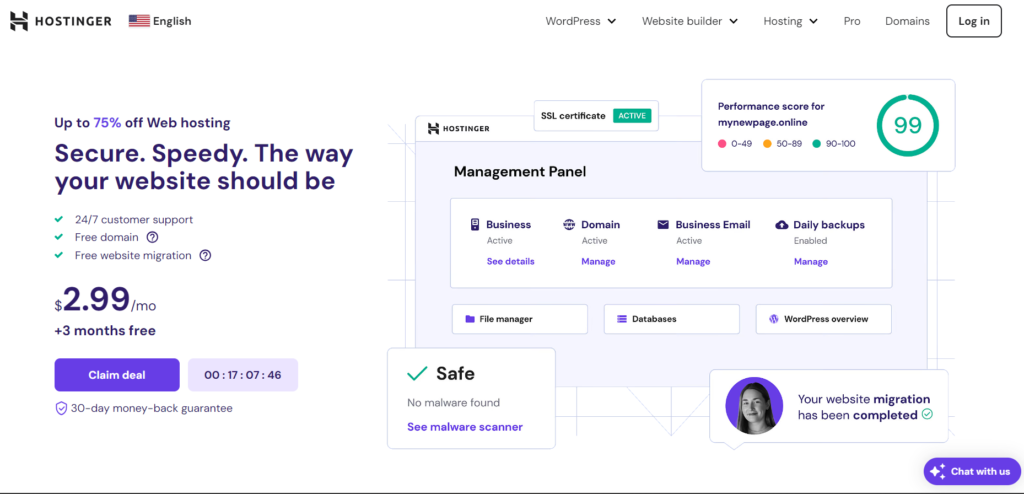
- Hostinger is an increasingly popular choice for WordPress hosting due to its combination of affordability, speed, and user-friendly features. It offers optimized WordPress hosting with features like LiteSpeed caching, a custom dashboard, and a 24/7 support team. Hostinger also provides a 30-day money-back guarantee, making it a risk-free option for new users.
- Best For: Beginners, bloggers, small to medium-sized websites looking for budget-friendly, high-performance hosting.

- Recommended by WordPress.org, Bluehost is known for its affordable shared and managed hosting plans. It offers a beginner-friendly interface, one-click WordPress installation, and 24/7 support.
- Best For: Beginners, small to medium-sized websites.
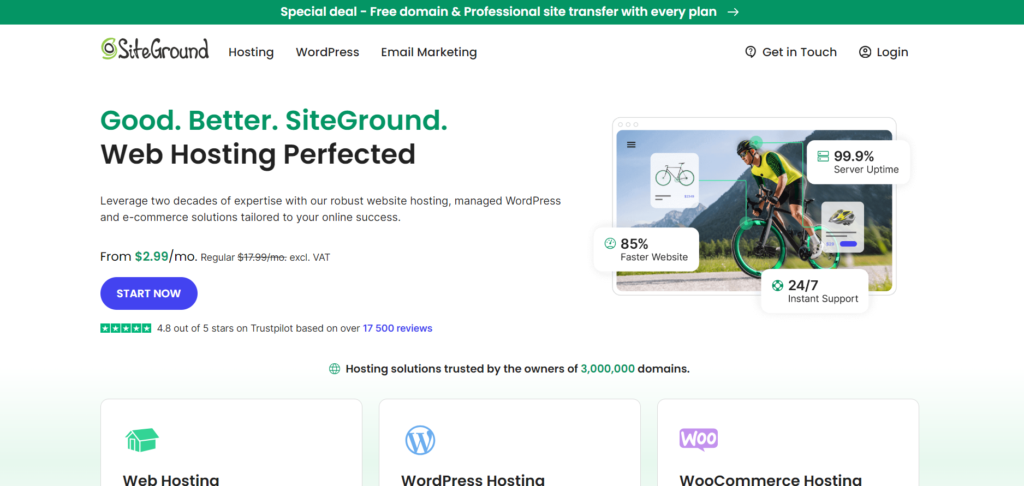
- SiteGround is a popular choice for managed WordPress hosting, offering fast performance, strong security features, and excellent customer support. It also provides free daily backups and SSL certificates.
- Best For: Small to medium businesses, e-commerce sites.
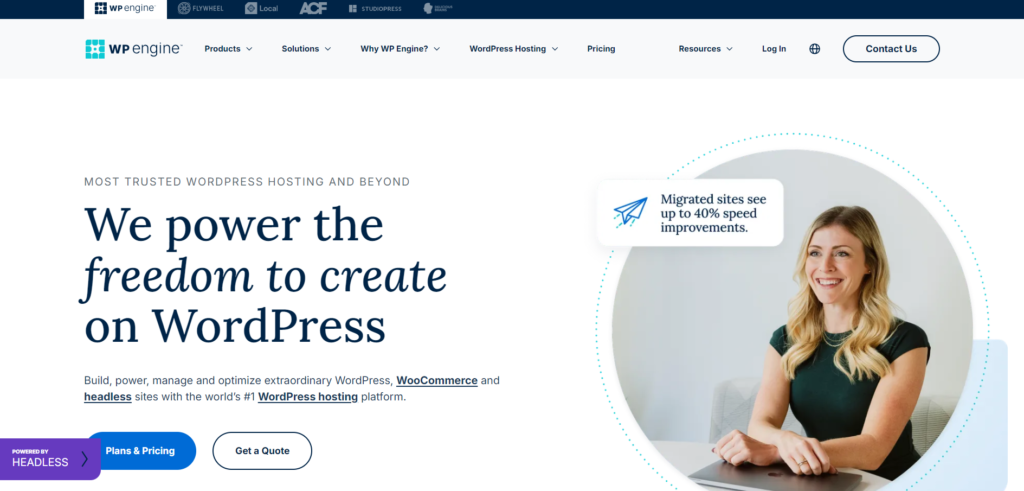
- WP Engine is a premium managed WordPress hosting provider known for its speed, security, and scalability. It offers a variety of plans, including solutions for enterprise-level websites.
- Best For: High-traffic websites, large businesses, and developers.
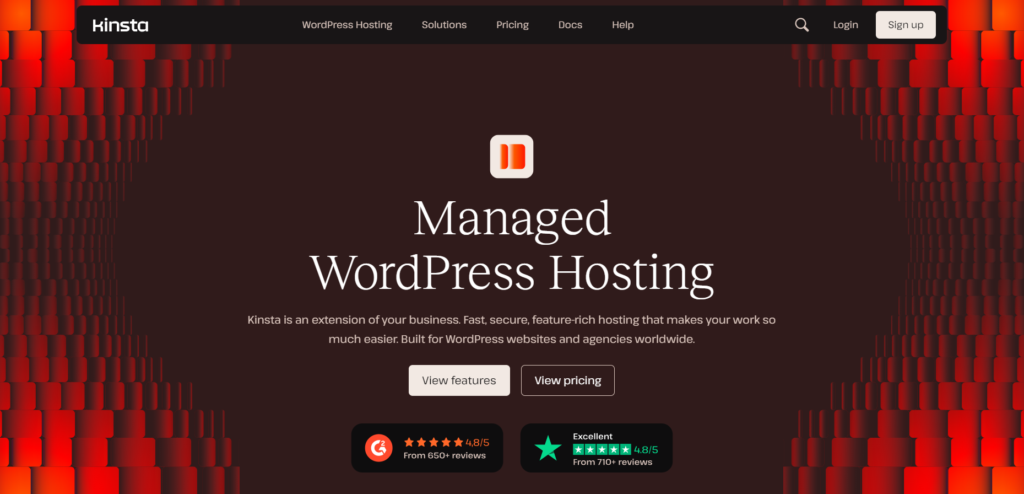
- Kinsta is a managed WordPress hosting provider that utilizes the Google Cloud Platform to deliver fast and reliable hosting. It offers automatic backups, advanced caching, and a powerful dashboard.
- Best For: Growing websites, agencies, and enterprises.
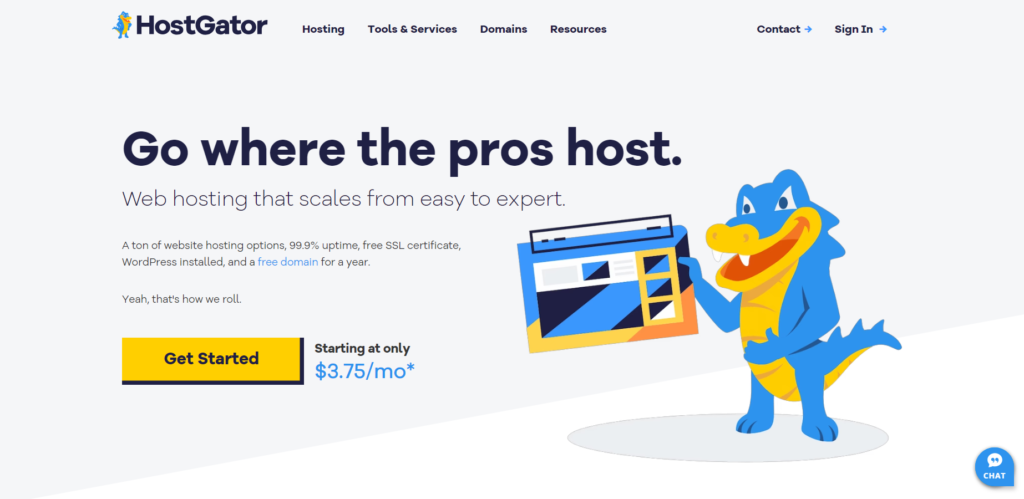
- HostGator offers a range of hosting options, including shared, cloud, and managed WordPress hosting. It is known for its affordability, easy setup, and reliable customer support.
- Best For: Beginners, small businesses.

- DreamHost is another officially recommended WordPress hosting provider that offers a range of affordable hosting plans. It provides a custom control panel, free SSL certificates, and automated updates.
- Best For: Beginners, small to medium-sized websites.
How to Choose the Right WordPress Hosting for Your Website
Choosing the best WordPress hosting for your website depends on several factors, including your budget, the size of your website, your technical skills, and the level of support you need. Here are some steps to help you make the right choice:
- Evaluate Your Needs: Consider the size of your website, expected traffic, and technical requirements to determine whether you need shared, managed, VPS, dedicated, or cloud hosting.
- Set a Budget: Determine how much you’re willing to spend on hosting. Remember that while budget options exist, investing in quality hosting can save you money and headaches in the long run.
- Test Customer Support: Reach out to potential hosting providers’ support teams with some questions. Their responsiveness and helpfulness can give you a sense of what to expect when you need assistance.
- Check for Compatibility: Ensure the hosting provider supports essential WordPress plugins, themes, and integrations that you might need.
- Read Reviews and Ratings: Look for reviews from real users to gauge the reliability, performance, and customer service of the hosting provider.
Conclusion
Choosing the right WordPress hosting is a crucial step in setting up a successful website. It directly impacts your site’s speed, security, and overall user experience. By understanding the different types of WordPress hosting and knowing what features to look for, you can select the hosting provider that best meets your needs and supports your website’s growth.
Take your time to explore the options, assess your requirements, and make an informed decision that ensures your WordPress site runs smoothly, securely, and efficiently.